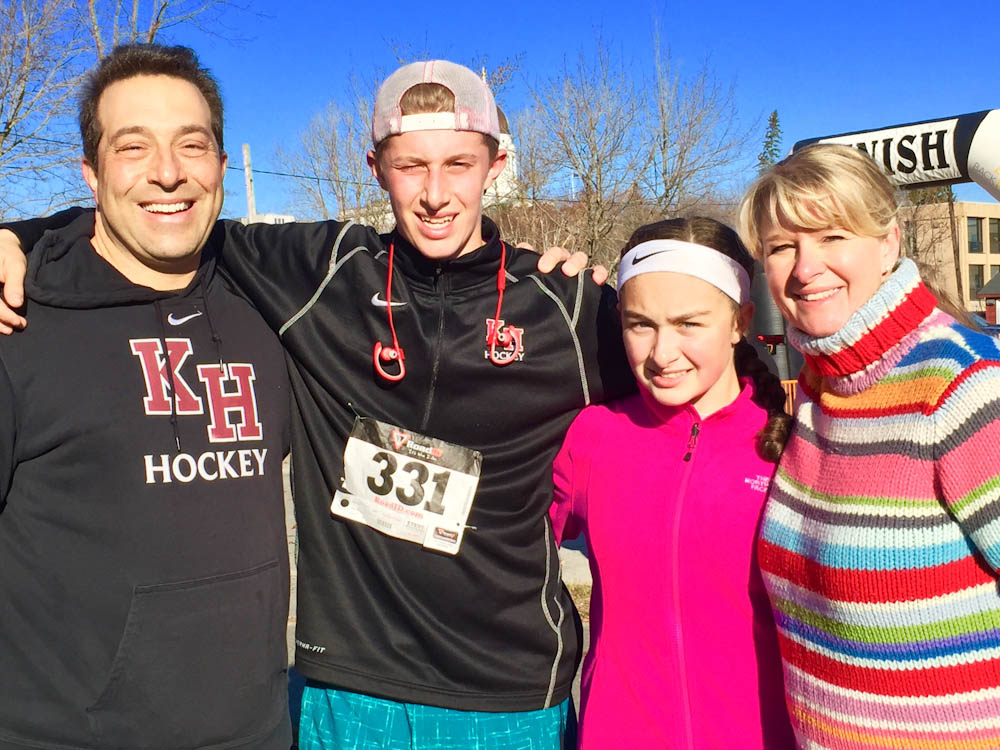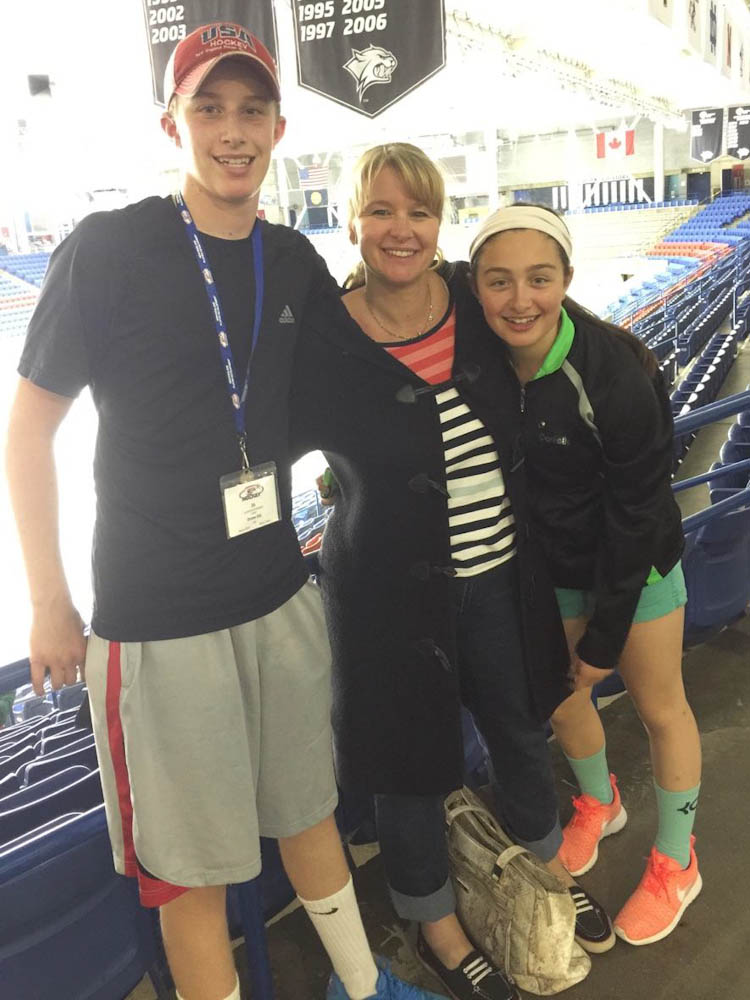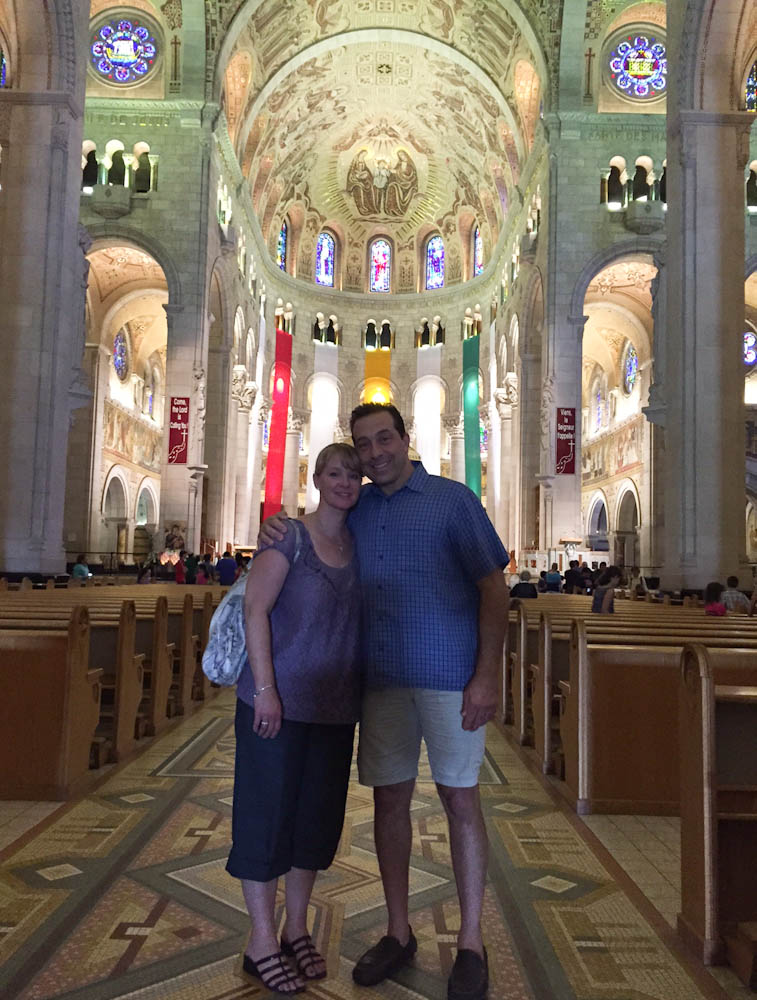As the wife of a New England sportscaster, and the sister and mother of athletes, Lisa Eid understands sports metaphors. So when the 48-year-old non-smoker learned that she had stage IV lung cancer last year, she knew what her husband, Dave, meant when he said, “We need to find the Tom Brady of lung cancer specialists.”
Like the Patriots quarterback and Super Bowl MVP, the Eids needed an oncologist used to overcoming difficult situations. Someone who could handle Lisa’s advanced diagnosis because of past experience, and had colleagues who possessed similar confidence bred from previous success.
In Geoffrey Oxnard, MD, and the Lowe Center for Thoracic Oncology at Dana-Farber/Brigham and Women’s Cancer Center (DF/BWCC), the Eids have their quarterback — and their team.

Lung cancer is diagnosed as one of two major types: small cell and non-small cell. Now advances in precision cancer medicine have enabled physician-scientists to uncover specific genetic mutations at the molecular level which drive the disease. Testing the DNA from patients’ tumors for these mutations, oncologists can provide targeted therapy – often in the form of first-line oral drugs – that offers better results with fewer side effects than standard chemotherapy infusions.
For Eid, a specific mutation in the ROS1 gene was the culprit. She began targeted therapy with the drug crizotinib just before Thanksgiving 2014; soon, her tumors shrank and quality of life improved. In fact, the mother of two teenagers felt so good on her daily regimen of pills that many people assumed she was done with active treatment.
“I’d be at the hockey rink or basketball court watching my kids, or in line at the grocery store, and people would say, ‘You look great; when did you get better?’” says Eid, who lives outside Portland, Maine. “I became a walking advertisement for targeted therapy.”

Oxnard says responses like Eids’ are the result of two developments. In 2004 physician-scientists led by Pasi Jänne, MD, PhD, director of Dana-Farber’s Lowe Center, identified that EGFR mutations found in lung cancer cause tumors to be sensitive to EGFR-targeted therapies. In the decade since, scientists have uncovered a variety of genetic alterations and targeted therapies that offer more specific, effective treatment against each patient’s individual cancer.
Read more:
“Every lung cancer patient at the Lowe Center receives genetic testing of his or her tumor,” says Oxnard. “In collaboration with the pathologists at Brigham and Women’s Hospital, we can offer patients a range of tests – rapid testing for EGFR, ALK, and ROS1, or comprehensive sequencing for these and hundreds of other genes. We will soon be offering a noninvasive blood test to find mutations that lead to treatment resistance. The goal is to accelerate targeted therapy development, so even as we try one new treatment, we’re already on the search for better ones.”
That’s great news to Eid, for whom the crizotinib therapy has stopped working. She started on a new drug this October, and understands that while her cancer is not cured, it is being treated as a controlled, chronic disease.
“I have so much faith in Dr. Oxnard and his team,” says Eid. “They research and study lung cancer and it’s what they do all day, every day. If they want me on a clinical trial, I’ll do it. If they want me to switch to standard chemo, I’ll do it. I’m in the best hands.”

Listen to an interview with Lisa and her husband from the 2015 WEEI/NESN Jimmy Fund Radio-Telethon.
